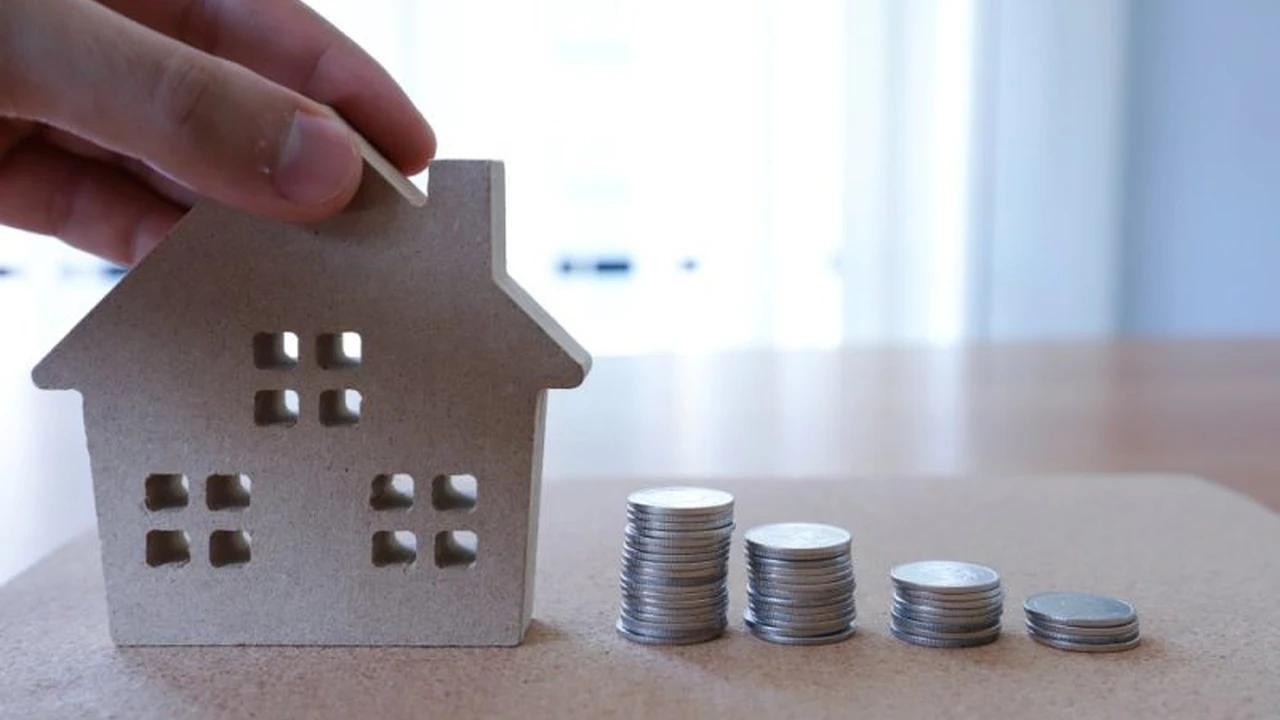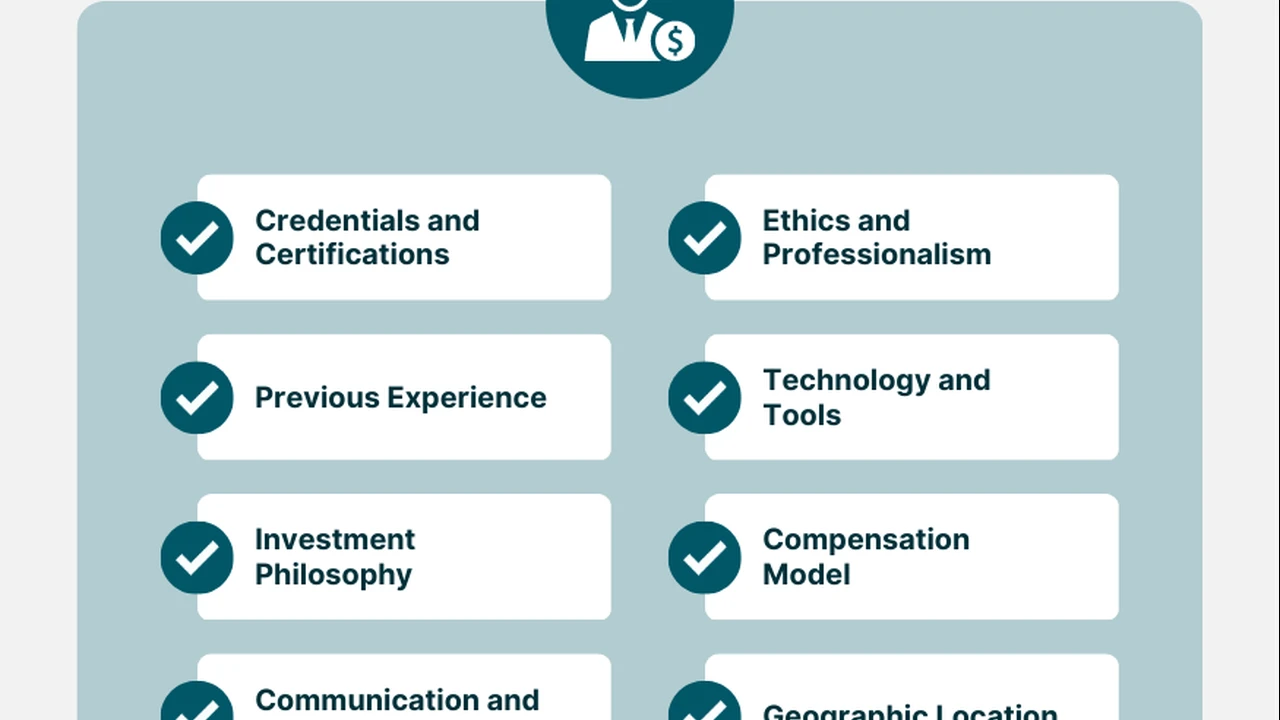Building Credit History from Scratch 7 Tips
Start your credit journey strong with these 7 essential tips for building a solid credit history from the ground up.

Building Credit History from Scratch 7 Tips
Hey there! So, you're looking to build your credit history from scratch, huh? Maybe you're fresh out of college, new to the country, or just haven't needed credit before. Whatever your situation, starting with no credit can feel a bit like trying to open a locked door without a key. Lenders often want to see a track record of responsible borrowing before they trust you with their money. But don't sweat it! Everyone starts somewhere, and building a solid credit history is totally achievable. It just takes a little strategy and patience. Think of it as laying the foundation for your financial future – a strong foundation means a sturdy house, right? Let's dive into seven essential tips that will help you get that credit ball rolling and open up a world of financial opportunities, from getting approved for apartments to securing better rates on loans.
Understanding the Importance of a Credit History for Beginners
Before we get into the 'how,' let's quickly touch on the 'why.' Why is a credit history so important, especially when you're just starting out? Your credit history is essentially your financial report card. It tells potential lenders, landlords, and even some employers how reliably you manage your financial obligations. A good credit history can unlock lower interest rates on loans (think car loans, mortgages), easier approval for rental applications, better insurance premiums, and even help you avoid security deposits on utilities. Without one, you might find yourself facing higher interest rates, needing a co-signer, or even being denied for things that seem basic. So, building credit isn't just about getting a credit card; it's about establishing financial credibility that impacts many aspects of your life.
Tip 1 Get a Secured Credit Card for New Credit Builders
This is often the go-to first step for anyone building credit from scratch. A secured credit card works a lot like a regular credit card, but with one key difference: you put down a cash deposit that acts as your credit limit. So, if you deposit $300, your credit limit is $300. This deposit minimizes the risk for the lender, making it much easier to get approved, even with no credit history. You use the card like any other, making purchases and paying your bill on time. The crucial part here is that your payments are reported to the major credit bureaus (Experian, Equifax, and TransUnion), which is exactly what you need to start building that history. After a period of responsible use (usually 6-12 months), many secured card issuers will even 'graduate' you to an unsecured card and return your deposit.
Recommended Secured Credit Cards for First-Timers:
- Discover it Secured Credit Card: This is a fantastic option. It requires a minimum deposit of $200, and after 7 months, Discover automatically reviews your account to see if you can transition to an unsecured card and get your deposit back. Plus, it offers 2% cash back at gas stations and restaurants (on up to $1,000 in combined purchases each quarter, then 1%) and 1% cash back on all other purchases. There's no annual fee, which is a huge plus.
- Capital One Platinum Secured Credit Card: This card is known for its flexibility with deposits. Depending on your creditworthiness (even with no history, they might offer a lower deposit for a higher limit), you could get a $200 credit line with a deposit of $49, $99, or $200. It also has no annual fee and reports to all three major credit bureaus.
- OpenSky Secured Visa Credit Card: What makes OpenSky stand out is that there's no credit check required to apply. This is ideal if you're truly starting from zero and want to avoid any potential hard inquiries. You choose your credit limit by making a refundable security deposit between $200 and $3,000. It does have an annual fee, typically around $35, but it's a small price to pay for guaranteed approval and credit building.
Usage Scenario: Use these cards for small, regular purchases you'd make anyway, like groceries, gas, or your monthly streaming subscriptions. The key is to pay off the full balance every month, on time. This demonstrates responsible behavior and keeps your credit utilization low, both of which are excellent for your credit score.
Tip 2 Become an Authorized User on an Established Account
This is a great shortcut, especially if you have a trusted family member (like a parent or spouse) with excellent credit. When you become an authorized user on their credit card, their positive payment history can appear on your credit report. This can give your credit score a significant boost without you even having to apply for your own credit. However, there's a catch: you're relying on someone else's financial habits. If they miss payments or max out their card, it could negatively impact your credit too. So, choose wisely and make sure it's someone you trust implicitly to manage their credit responsibly.
How it Works: The primary cardholder simply calls their credit card company and adds you as an authorized user. You'll get a card with your name on it, but you're not legally responsible for the debt. Discuss expectations with the primary cardholder – will you use the card? Will you contribute to payments? Transparency is key.
Tip 3 Consider a Credit Builder Loan for Financial Growth
A credit builder loan is a bit different from a traditional loan. Instead of receiving a lump sum upfront, the money you borrow is held in a savings account or certificate of deposit (CD) by the lender. You make monthly payments on the loan, and these payments are reported to the credit bureaus. Once you've paid off the entire loan, you get access to the money. It's essentially a forced savings plan that also builds your credit history. It's a smart way to demonstrate your ability to make consistent payments.
Popular Credit Builder Loan Providers:
- Self Credit Builder Account: Self (formerly Self Lender) is one of the most well-known providers. They offer loans ranging from $525 to $1,500, with terms from 12 to 24 months. You make monthly payments, and at the end of the term, you get your money back (minus a small administrative fee and interest). They report to all three major credit bureaus. For example, a $500 loan over 12 months might have monthly payments of around $48, and you'd get $500 back at the end.
- Kikoff Credit Account: Kikoff offers a unique approach. It's a $75 credit line that you can use to buy items from their online store. You make small monthly payments (e.g., $5-$10) on your purchases, and these payments are reported to the credit bureaus. It's designed to be very low-cost and easy to manage, making it accessible for almost anyone. There's no interest charged on the credit line itself, just the cost of the items you buy.
- Credit Strong (by Austin Capital Bank): Credit Strong offers various credit builder accounts, including some that function like a secured savings account. You choose a plan, make monthly payments, and they report to all three bureaus. Their 'Magnum' plan, for instance, allows you to build up to $10,000 in credit history. They have different tiers with varying monthly payments and loan amounts.
Comparison: Self and Credit Strong are more traditional credit builder loans where you get a lump sum back. Kikoff is more like a small credit line for specific purchases. All three are effective for building payment history. Self and Credit Strong might be better if you also want to build some savings, while Kikoff is excellent for a very low-cost, low-commitment start.
Tip 4 Report Your Rent and Utility Payments to Credit Bureaus
Did you know that your on-time rent and utility payments, which you're likely already making, can actually help build your credit? Traditionally, these payments aren't reported to credit bureaus unless they go to collections. However, several services now exist that can report your positive payment history for a small fee. This is a fantastic way to leverage existing financial responsibilities to your credit advantage.
Services for Reporting Rent and Utilities:
- Experian Boost: This free service allows you to connect your bank account and identify qualifying on-time utility and telecom payments (like cell phone, internet, and electricity bills). Experian Boost then adds these payments to your Experian credit report, potentially increasing your FICO Score 8. It's quick, easy, and free, but only impacts your Experian score.
- RentReporters: For a fee (around $9.95/month or an annual plan), RentReporters will report your past and ongoing rent payments to TransUnion and Equifax. They can even report up to two years of past rent payments, giving your score a significant jump almost immediately.
- LevelCredit: Similar to RentReporters, LevelCredit reports your rent and utility payments to Equifax and TransUnion. They offer different plans, including options to report past payments. Their pricing is competitive, often around $6.95/month.
- Bilt Rewards Credit Card: This unique credit card allows you to pay rent without transaction fees and earn points. Crucially, it also reports your rent payments to all three major credit bureaus, helping you build credit while earning rewards. It's an unsecured card, so approval might be harder if you have absolutely no credit, but it's worth considering once you have a little history.
Pricing and Usage: Experian Boost is free and great for a quick boost to one bureau. RentReporters and LevelCredit are paid services but report to multiple bureaus and can include historical data, which is very powerful. The Bilt card is a credit card with rent reporting as a feature, offering a comprehensive solution if you qualify.
Tip 5 Get a Co-Signed Loan for Larger Purchases
If you need a loan for something specific, like a car or a student loan, and you have no credit history, a co-signed loan might be your best bet. A co-signer (someone with good credit) agrees to be equally responsible for the loan if you can't make the payments. This reduces the risk for the lender, making them more likely to approve your application and potentially offer you better terms. Just like with authorized users, the co-signer's credit history will be linked to the loan, so their responsible payments will help build your credit. However, if you miss payments, it hurts both your credit and theirs, and they'll be on the hook for the debt. This is a serious commitment for both parties.
Scenario: You're buying your first car. A parent or trusted relative with good credit could co-sign the auto loan. This allows you to get approved and start building a positive payment history on a significant loan, which looks great to future lenders. Make sure you understand the payment schedule and commit to making every payment on time.
Tip 6 Maintain Low Credit Utilization and Pay on Time
Once you have any form of credit, whether it's a secured card or a credit builder loan, how you manage it is paramount. Two factors are huge for your credit score: payment history and credit utilization. Payment history accounts for about 35% of your FICO score, and credit utilization (how much credit you're using compared to your total available credit) accounts for about 30%. So, these two are massive!
- Pay on Time: This is non-negotiable. Even one late payment can severely damage your nascent credit history. Set up automatic payments or calendar reminders to ensure you never miss a due date.
- Keep Utilization Low: Aim to keep your credit utilization below 30% – ideally even lower, like under 10%. If your secured card has a $300 limit, try not to carry a balance over $30-$90. If you spend more, pay it off before your statement closing date to ensure a low reported balance. This shows lenders you're not over-reliant on credit and can manage your debts responsibly.
Example: If you have a credit card with a $500 limit, try to keep your monthly balance below $150. If you spend $200, pay off $100 before the statement closes, leaving a $100 balance to be reported. Then pay that $100 off in full by the due date.
Tip 7 Monitor Your Credit Report Regularly for Accuracy
As you start building credit, it's crucial to keep an eye on your credit report. Errors can happen, and even a small mistake could hinder your progress. You're entitled to a free copy of your credit report from each of the three major bureaus (Experian, Equifax, and TransUnion) once every 12 months through AnnualCreditReport.com. Take advantage of this!
What to Look For:
- Personal Information: Ensure your name, address, and Social Security number are correct.
- Account Information: Check that all accounts listed belong to you and that the payment status (on-time, late, etc.) is accurate.
- Credit Inquiries: Make sure you recognize all hard inquiries. Too many in a short period can slightly lower your score.
- Negative Items: Look for any collections, charge-offs, or bankruptcies that shouldn't be there.
If you find an error, dispute it immediately with the credit bureau and the creditor. Correcting inaccuracies can sometimes give your score an instant boost. Many credit card companies and banks also offer free credit score monitoring services, which can be a helpful tool.
Beyond the Basics Advanced Credit Building Strategies
Once you've got a few months of positive payment history under your belt, you might start looking at other options. Here are a couple of advanced tips:
Graduate to an Unsecured Credit Card for Better Benefits
As mentioned with secured cards, many issuers will 'graduate' you to an unsecured card after responsible use. This means you get your deposit back, and you'll have a regular credit card. If your secured card doesn't offer this, or if you want more options, consider applying for a basic unsecured card designed for people with fair credit. Look for cards with no annual fees and perhaps some simple rewards.
Consider a Small Personal Loan for Diverse Credit Mix
Once you have a credit card, adding an installment loan (like a small personal loan) can diversify your credit mix, which is another factor in your credit score. Just make sure it's a loan you genuinely need and can comfortably afford to pay back on time. Don't take out a loan just for the sake of building credit if you don't need the money.
Final Thoughts on Your Credit Building Journey
Building credit from scratch is a marathon, not a sprint. It requires consistency, discipline, and a good understanding of how credit works. By following these seven tips, you'll be well on your way to establishing a strong credit history that will serve you well for years to come. Remember, every on-time payment, every low utilization rate, and every accurate report contributes to your financial well-being. Stay diligent, stay informed, and watch your credit score grow!
Good luck on your credit journey!
:max_bytes(150000):strip_icc()/277019-baked-pork-chops-with-cream-of-mushroom-soup-DDMFS-beauty-4x3-BG-7505-5762b731cf30447d9cbbbbbf387beafa.jpg)






